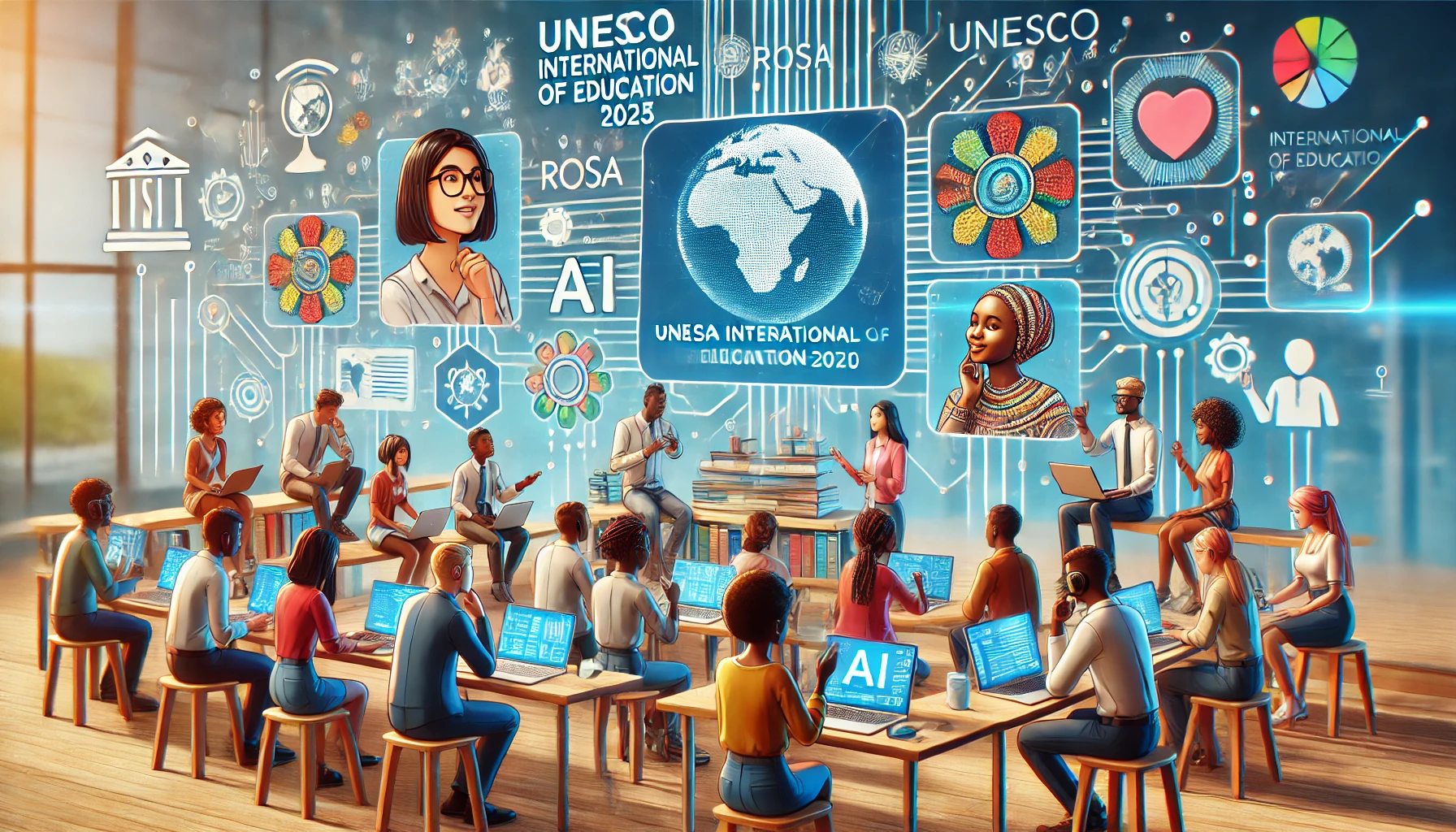UNESCO ROSA Champions Ethical AI Integration in Education
Empowering the Future: Southern African Youth Shape AI and Education Discourse at UNESCO ROSA Webinar.

"Education is the point at which we decide whether we love the world enough to assume responsibility for it," said Hannah Arendt, whose timeless words set the tone for the 2025 International Day of Education webinar hosted by the UNESCO Regional Office for Southern Africa (UNESCO ROSA). Held on 24 January 2025 under the theme, "Artificial Intelligence (AI) and Education: Preserving Human Agency in a World of Automation," the webinar provided a platform for learners from nine Southern African countries to voice their perspectives on the intersection of AI and education.
The event highlighted how innovative AI technologies are transforming education systems globally. Discussions focused on personalized learning pathways, auto-graded assignments, AI-assisted feedback mechanisms, and AI-powered platforms designed to enhance student engagement, foster creativity, and improve learning outcomes. Participants explored the potential of AI to tackle global challenges through enhanced critical thinking and problem-solving skills.
UNESCO ROSA Director Emphasizes Ethical AI Use
In her keynote address, UNESCO ROSA Director Nisha underscored AI’s role as a vital tool for inclusive and equitable education. She highlighted the importance of leveraging AI ethically and responsibly, ensuring technology enhances human capabilities rather than replacing them.
"We must ensure AI complements and does not replace our voice, our human agency," said Nisha.
She reiterated UNESCO’s commitment to ethical AI, referencing the 2021 Recommendation on the Ethics of Artificial Intelligence. Inviting students to reflect on AI’s benefits, Nisha emphasized how AI can enhance education, advance research, and build capacities for all age groups, particularly children, youth, and the working-age population.
Youth Voices at the Forefront of AI Discussions
Peter Wells, Head of Education at UNESCO ROSA, applauded the engagement of young participants, emphasizing their critical role in shaping the future of AI in education.
"You are the future. You understand AI and technology far more than many of us. We rely on you and your insights," Wells stated.
Participants expressed optimism about AI’s transformative potential in education, while stressing the need for continuous dialogue, research, and capacity-building to maximize its benefits.
Current AI Integration in Education: A Global Perspective
UNESCO surveys revealed that as of May 2023, only 10% of 450 schools and universities worldwide had developed formal policies for AI use, particularly generative AI applications. In early 2022, only seven countries had implemented AI-related frameworks for educators, and 15 had incorporated AI training objectives into national curricula—none of which were Southern African nations.
Moderating the discussions, UNESCO ROSA Education Programme Specialist Rovani Sigamoney emphasized AI’s potential to enhance education while safeguarding human intelligence. Discussions focused on digital literacy, critical thinking, ethical considerations, and the need for inclusive and equitable AI-driven learning environments.
Participant Insights: A Call for Inclusive AI Ms. Aone Aabobe from Botswana urged policymakers to prioritize digital literacy and ethics education.
"Education is the most powerful way to prepare people for a world of automation. By teaching digital literacy, fostering critical thinking and creativity, and promoting lifelong learning, we can ensure that human agency is preserved," said Aabobe.
Ms. Tshegofatso Molepo from South Africa stressed the need for African engagement in AI development to prevent biases.
"Education needs to inspire you to think creatively and define what it means for this 'intelligence' to be 'artificial.' Choose to make artificial intelligence work for you," Molepo encouraged.
A Collaborative Call to Action The webinar concluded with a unified call to action from UNESCO ROSA, emphasizing the importance of collaboration among educators, policymakers, researchers, students, and technology developers to ensure AI remains ethical and inclusive.
"By embracing AI thoughtfully and responsibly, we can create a more equitable, engaging, and effective learning environment for all learners," said UNESCO ROSA National Programme Officer, Lovemore Ndlovu.
By amplifying youth perspectives, Southern Africa is paving the way for a more inclusive, responsive approach to AI in education. As these voices continue to shape the discourse, the region stands poised to harness AI’s transformative potential to empower learners and educators alike.










